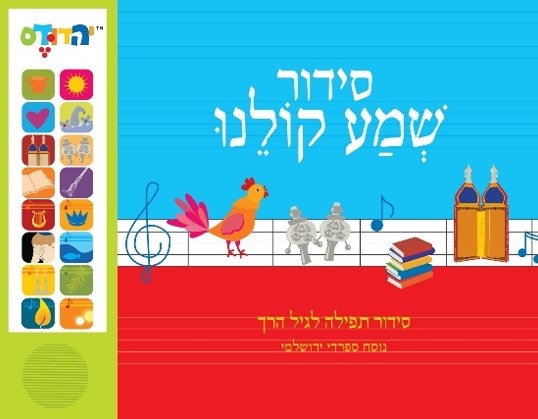Amit Sofer: "When the Soul Plays, the Instrument Doesn't Matter"
Before an audience of thousands, he put down the trumpet and picked up the shofar, from which emerged a piercing and penetrating melody of "Avinu Malkeinu," replacing the breaks and blasts. On the eve of Judgment Day, trumpeter Amit Sofer touches the heart.
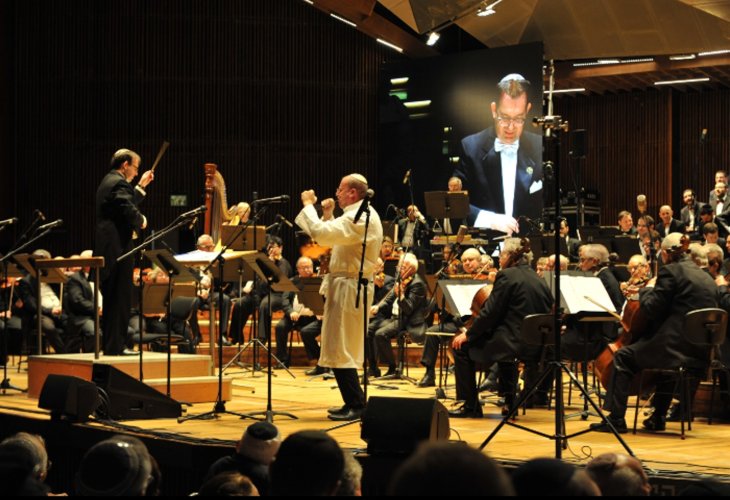 Tel Aviv Concert (Photo: Ariel Weiss)
Tel Aviv Concert (Photo: Ariel Weiss)"I played with the greatest orchestras in the country and the world, and reached a saturation point, until six years ago, by the way, I took the shofar in hand. I told myself: 'Who said the shofar can't play music?' and the shofar played." Amit Sofer (47), a musician and trumpet player, has performed frequently with Muna Rosenblum, Moshe Laufer, Tzemed Reim, Dudu Fisher, Verdigr, the Shalhevet Orchestra, the Ra'anana Symphony Orchestra, Maestro Ophir Sobol, military bands, and where not? In his concerts during the month of mercy, Sofer sets the trumpet aside and moves audiences with the melodies of the shofar, melodies that leave no one indifferent. The emotions in the hall spill over beyond the accepted lines as the audience is swept into the singing of "Avinu Malkeinu."
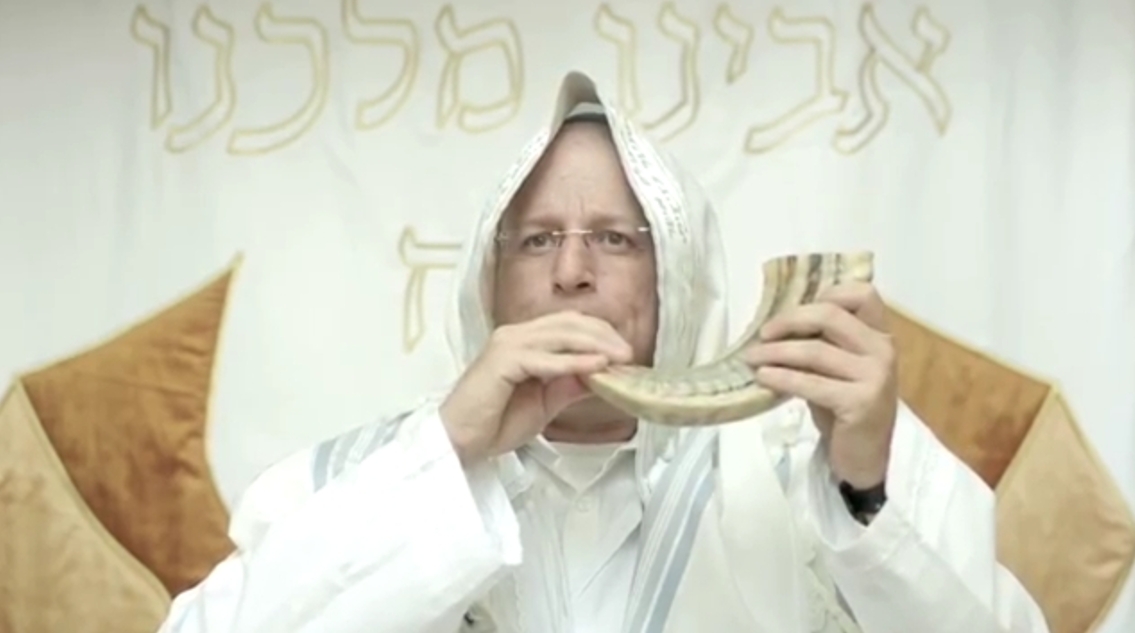 (Photo: Moshe Gelber)
(Photo: Moshe Gelber)How do you manage to create such moving sounds from the shofar? I can't even produce a basic blast from it.
"The key to your question lies in the physics of the shofar," Sofer replies. "The basic condition is that the shofar has a wide diameter mouthpiece. Once I have a comfortable and suitable mouthpiece, I can, using air and lip play, produce three basic tones, from which I can start building the melody. What allows me to receive a broad spectrum of sounds is the play of the left hand (the trombone effect), which changes the tone. I call it magic."
I understand from your words that if a trumpet player tries to blow the shofar, he won't succeed?
"You understand well. Many who try to produce sound from a shofar will completely fail, and even the most experienced may 'falsify.'"
The Magic Shofar
Is the shofar you perform with one you've specifically prepared for these tunes, or is it spontaneous?
"The story of the shofar is very interesting. I went into a Judaica shop in Jerusalem and looked for a shofar. The friendly seller gave excellent service and showed me all kinds of shofars. 'This one is a very fine shofar; its price is eight hundred shekels, but now it is on sale, and you can get it for seven hundred shekels,' the seller told me. But I wasn't looking for a fancy shofar; I was looking for a shofar that could play. I continued to browse the store until I reached the simplest shofars, shofars for fifty shekels. As it happened, they were also decorated under the supervision of Rabbi Mahpud. I picked up the first shofar, saw it had a wide mouthpiece, and gave a blast in the middle of the store. The amazed seller was astonished at the capabilities of the shofar but only asked for his fifty shekels. I paid and left, and since then, this is the shofar that accompanies me in performances. It's a very rare shofar, and I don't allow anyone to touch it, not even my son, who is also a musician by profession."
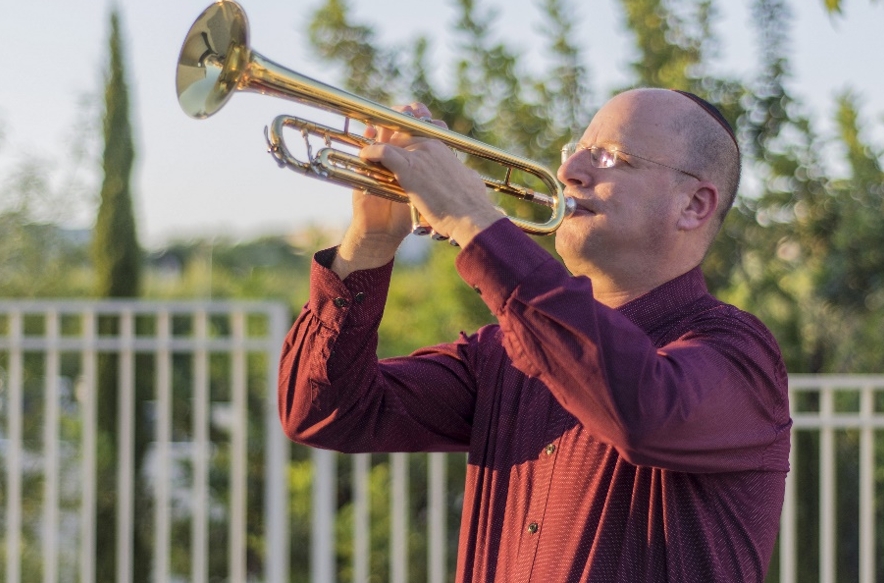 (Photo: David Hochberg)
(Photo: David Hochberg)Do you also use this shofar on Rosh Hashanah?
"Yes, absolutely. This shofar is not just a ram's horn; it's the defender of the people of Israel, a shofar that has moved thousands of Jews and stirred their hearts to our Father in heaven. Such a shofar cannot sit in a drawer on Rosh Hashanah. It must do the breaks and blasts, making its way beneath the Throne of Glory on the great and terrible day. I don't just use it in synagogue; after the prayer, I have further tours to various homes for those with disabilities who can't make it to the synagogue to hear the blasts. I would call it 'The Shofar of Kindness.'"
And why does someone wake up one morning and decide to try to produce sound from a shofar? You didn't try to produce sound from your coffee cup, did you?
"Don't compare the shofar to a coffee cup... it's no coincidence that the Torah chose the shofar for the blasts of Rosh Hashanah. The shofar has its unique sound, which cannot compare to any other instrument. When the impressive and blowing shofar begins to produce sound, the emotions manage to reach heights and other places, and that is the main secret in music."
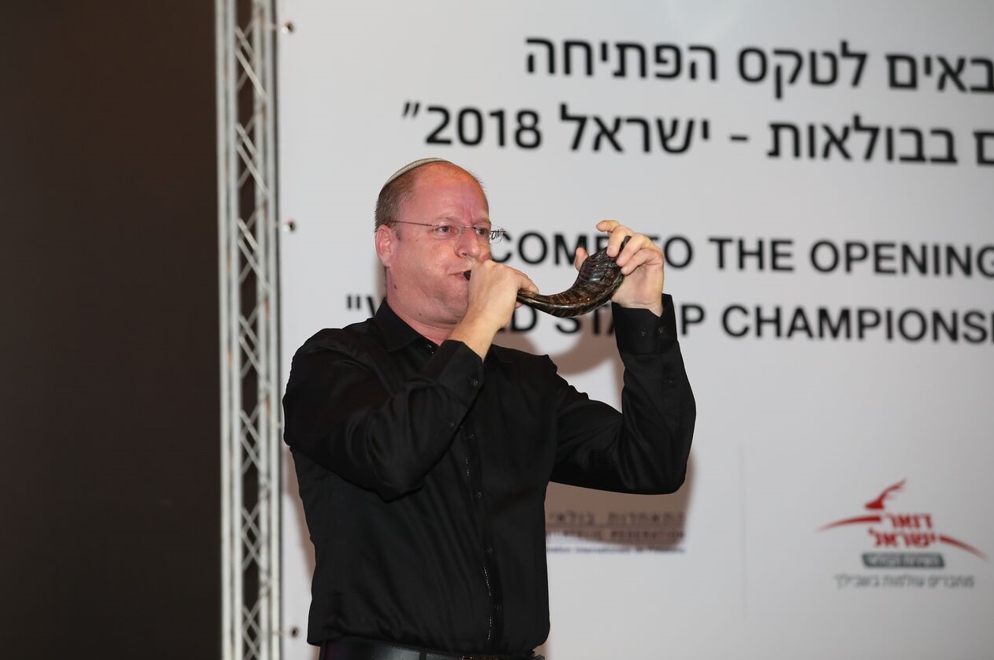 From the Show to the Philatelic Service (Photo: Elchanan Shapira)
From the Show to the Philatelic Service (Photo: Elchanan Shapira)You start with secrets; that sounds interesting. What other secrets can you reveal to me?
"There are three secrets in music, and none of them are taught in music schools. I learned them from the emotional master Rabbi Shlomo Carlebach z"l, with whom I had the merit of playing in my youth. The first secret is the secret of simplicity. Don't try to complicate matters with all sorts of melodies that don't exist. The second secret is emotion. That's what the music listener hears before anything else. And the third secret, 'Love your neighbor as yourself.' Everyone knows this is a secret for life, but you should know it's also a secret for music. No matter where we perform, we love everyone, even if they're not exactly on our line, or moreover, even if they're exactly not on our line."
Love of Man
Where did you first encounter the challenge of "Love your neighbor as yourself"?
"There was a singer identified with the Israeli left; he even appeared in commercials for the Meretz party, and one of his performances was organized. But the trumpet player for that performance had to be absent at the last minute, and he was looking for a replacement. He found me. I arrived at the performance looking like a traditional Jew, with a yarmulke and tzitzit. One of the organizers didn't take too much consideration and rudely and blatantly asked me: 'What's this? You brought us Kahane Chai for the performance? This is not the place for that.' I told him: 'My brother, I'd be happy to hug you, I love you, no matter what you say, love your neighbor as yourself.' He was shocked by the response."
Allow me to ask you, as someone whose main occupation is performing before an audience, what was the most embarrassing thing that happened to you?
"It was at a completely secular wedding. I was the trumpet player for the chuppah. When we finalized everything, they asked to meet with me to coordinate a special song to be played under the chuppah. They wanted a Jewish song to add a bit of *Yiddishkeit* to the wedding. The chuppah began, all the guests were seated, the host announced over the microphone: 'Now the musician will play the song chosen by the bride and groom,' and I suddenly blanked. I forgot the song they chose. I didn't know what to do; the frustration was enormous, and not to mention the embarrassment. I don't know what suddenly happened to me. How could it be? I've performed before thousands of audiences, and this never happened to me. But a musician sometimes has to be like a pilot or a basketball coach and make split-second decisions. I took the microphone, wished the groom and bride a good luck blessing for their wedding day, and added, 'I've heard the groom has a very beautiful voice. I think there's nothing more appropriate than the groom starting to sing, and I will accompany him.' That's how I extricated myself from the embarrassment of my life."
It's nice that secular people want a song with *Yiddishkeit* at their wedding. What song was it?
"It was the song 'Brit Olam' by Mati Caspi."
Are you kidding me? That's considered *Yiddishkeit*?
"Now you're finally touching the third secret of playing I told you about earlier, 'Love your neighbor as yourself.' If you knew what level of secularism was there at the wedding, you'd understand that for them it wasn't just a song with *Yiddishkeit*, it was a song from the Ganz Bnei Brak vision. It's very nice that Jews detached from any spark of Judaism want at their wedding a small connection to *Yiddishkeit* as they understand it."
I understand that your main occupation is in the evenings. What do you do all morning?
"I'll tell you that music is not my main occupation at all. About twenty years ago, Dudu Fisher approached me and told me he was producing a new series, 'Dudu for Kids.' He asked me to partner in the series, produce it and manage its sales. Since then, I entered the children's world and discovered a whole world more. I had a lot more work, and most importantly - I had a lot more satisfaction. Later I created a digital prayer book for children, a special prayer book where if the child wants to hear a section from the prayer, he presses the button next to the prayer section, and the siddur recites to him the selected section. Later, also on the same digital idea, I compiled a siddur called 'Shma Kolenu.' Rabbi Yisrael Meir Lau gave me approval for this siddur, and it also came out in a Jerusalem version with the approval of Rabbi Shlomo Moshe Amar. Even in South Korea, they received these siddurs. They really wanted to learn about Judaism and understood that through the siddur it would be easier for them. I also released another digital book about the Land of Israel, teaching children about places and sites in the country, and for each place and site, I matched a song suitable for the place and period. For example, whoever presses the button for Jerusalem gets an explanation about Jerusalem and also the song 'Jerusalem of Gold' at the end. This entire big salad is called 'Kol Hasefer.' Because it's clear to me that the base for everything is music, and mainly music."
